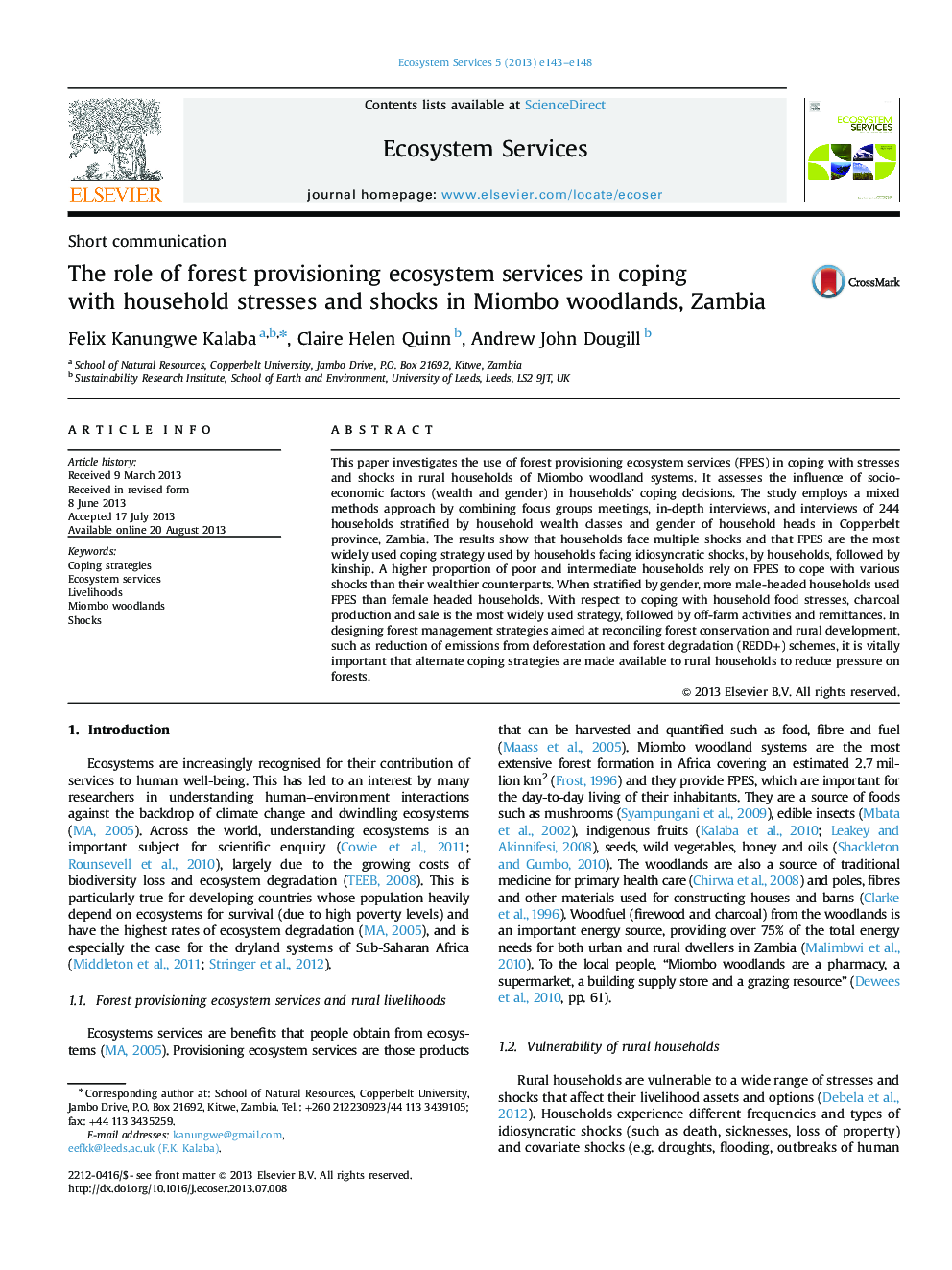| Article ID | Journal | Published Year | Pages | File Type |
|---|---|---|---|---|
| 6557006 | Ecosystem Services | 2013 | 6 Pages |
Abstract
This paper investigates the use of forest provisioning ecosystem services (FPES) in coping with stresses and shocks in rural households of Miombo woodland systems. It assesses the influence of socio-economic factors (wealth and gender) in households' coping decisions. The study employs a mixed methods approach by combining focus groups meetings, in-depth interviews, and interviews of 244 households stratified by household wealth classes and gender of household heads in Copperbelt province, Zambia. The results show that households face multiple shocks and that FPES are the most widely used coping strategy used by households facing idiosyncratic shocks, by households, followed by kinship. A higher proportion of poor and intermediate households rely on FPES to cope with various shocks than their wealthier counterparts. When stratified by gender, more male-headed households used FPES than female headed households. With respect to coping with household food stresses, charcoal production and sale is the most widely used strategy, followed by off-farm activities and remittances. In designing forest management strategies aimed at reconciling forest conservation and rural development, such as reduction of emissions from deforestation and forest degradation (REDD+) schemes, it is vitally important that alternate coping strategies are made available to rural households to reduce pressure on forests.
Related Topics
Life Sciences
Agricultural and Biological Sciences
Agricultural and Biological Sciences (General)
Authors
Felix Kanungwe Kalaba, Claire Helen Quinn, Andrew John Dougill,
